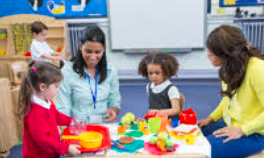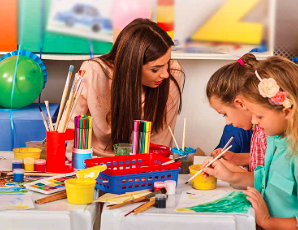Early childhood is a vital stage in a child’s development, laying the foundation for future learning and well-being. While teachers and caregivers play an essential role, the involvement of parents is just as important. From the moment a child is born, parents become their first teachers—guiding, nurturing, and supporting their growth in countless ways.
Creating a Learning Environment at Home
Parents can help shape their child’s early learning journey by making the home a place where curiosity is encouraged. Simple actions like reading books together, singing songs, or asking open-ended questions during playtime can make a big difference. These daily interactions build language skills, boost imagination, and improve attention span—all key elements for school readiness.
Encouraging Social and Emotional Growth
Early childhood education goes beyond letters and numbers. It also focuses on how children interact with others and understand their own emotions. Parents support this development by modeling kindness, setting routines, and helping children learn to express their feelings in a healthy way. Listening with patience and offering comfort during challenging moments teaches children empathy and resilience.
Partnering with Educators
When parents and teachers work together, children benefit greatly. Staying in touch with educators, attending meetings, and sharing updates about the child’s interests or concerns helps create a stronger support system. This collaboration ensures consistency between home and school, making it easier for children to feel secure and confident.
Fostering a Positive Attitude Toward Learning
A parent’s attitude toward education often shapes how a child feels about learning. When children see their parents excited about discovery, books, or solving problems, they tend to mirror that enthusiasm. Celebrating small achievements, being involved in school activities, and showing interest in what the child is learning help reinforce a positive mindset.
Supporting Independence and Confidence
As young learners explore the world, parents can offer gentle guidance while encouraging independence. Allowing children to make choices, try new things, and learn from mistakes helps build confidence. A supportive environment that values effort over perfection sets the stage for lifelong learning.
Final Thoughts
The role of parents in early childhood education is both powerful and rewarding. Through everyday moments filled with love, attention, and encouragement, parents help their children grow into curious, capable, and caring individuals. When families stay engaged and supportive, children are more likely to thrive—in school and beyond.














